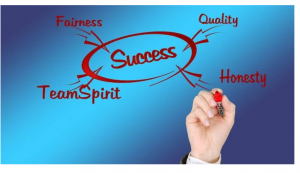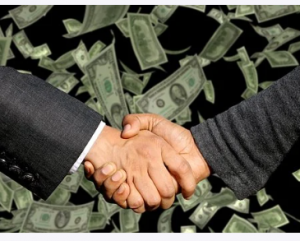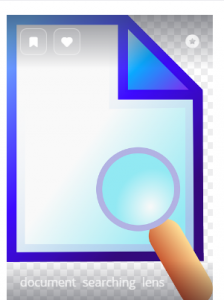Sales : How to close most effectively?
 Introduction to Closing in Sales
Introduction to Closing in Sales
- Now we know that closing of sales is the crucial point and it should not get very transactional in the form of yes or no. The closing initiative should be at a point when the customer is fully satisfied. The customer is confident about the product or solution and is ready to proceed based on the suggestions or solutions provided by the salesperson. So the core focus is the customer again here in closing.
- So basically closing happens when the customer is committing to purchase the stuff. It is the culmination of the final process of the sales and determines the success or failure of the entire sales process. There is no pushing in the closing process it has to be properly given time and the customer needs and wants have to be properly addressed before closing.
 Closing of Sales Types
Closing of Sales Types
- So there are different types of sales closing depending on the different types of personalities or maybe the situations that come he did so the first one is assumed close or pushy close where a yes or no transactional approach is adopted with the customer, as soon as the buying signals are there. Then there are closes like the summary-based closing. When the salesperson gives a summary of the solution or the product or maybe reviews the key benefits and the value that would be delivered. The idea here is to help the customer come to congruence. So giving the maximum data to the customer helps the buyers to rationalize the buying decision logically.
- Now there are various techniques of closing one is the sharp angle close. So the seller says “If I give you free of cost shipping would you buy now?”. Then are trial causes where testing for the customer’s commitment is there or maybe he is given some free time to evaluate the solution or the product. The basic idea is to reduce customer objections and engage the prospect’s readiness to buy.
 Types of Sales Closings:
Types of Sales Closings:
- In assumptive close the salesperson assumes that the buyer wants to buy it and he simply goes ahead to know about the delivery details extra.
- Main trial closes Basic soft testing of the customer’s motivation to buy or give the final commitment. Which is primarily gauged here.
- So there is the now were never close where their sense of urgency that is added or time limit of product or solutions availability is added to the sales process. Like on Amazon, certain books are suggested to be about to be sold off or only 1 copy left, etc.
- When it is the summary close, it is where all the benefits are summarized with the customer to help in enabling customer decision making.
- Sharp angle close is what we just discussed. so here for example the buyer says “Hey If I just give you the cost freight, would you go for this buying decision?” .
- When there is an alternative close where instead of asking for yes or no answers. It asks for alternatives so as an example of alternative close, the salesperson instead of asking for yes and no could ask “Would you like a blue one or a red one ?”.
- Conditional closes based on conditions saying that “if I meet your say financial requirements or budget would you like to proceed?”.
- In The case of Silence close the salesperson stays quiet and this sort of compels the buyer to speak first.
- High-pressure closes use more aggressive or sense of urgency for buying. But this is discouraged in long-term sales because some or the Other issued goods come to the fore.
- Now there is a Franklin close which lists the pros of things in favor of the solution. Plus cons that are against the solution to help the client justify the reason based on logic & facts.
- And it is hard to get close is creating a scarcity of this is not available or it is very exclusive so you or the buyer should go for action regarding buying.
 Kinds of Closings in Sales
Kinds of Closings in Sales
- There are different kinds of closing as we discussed earlier. Like for example the trial close assumptive close or even sharp angle close or summary-based close. So also pressure pays off at times, like now Or never close. Then is the alternative close or conditional close or hard to get close? And also high pressure close. So there is a slight change in the approach in summary close or conversational or soft close. In which you give full information to the end customer so that the customer comes forward to buy Others are urgency-based, like strategic pressure-based close.
- The trial close is just to get a feel of how much the customer is interested in the solution or service so far. So like asking how much how does the solution sounds or feels till now. If the Solution is good for the needs of the customer or not. For this one needs to read the customer’s mindset handle objections and adjust the pitch in accordance to get to the close.
- So the other is commitment-related close which means a buyer has decided to proceed and wants to commit on paper and make the payments. So there is a proper alignment in the values and there is a success the sales in the process.
- Assumed close as we can guess from the name is the salesperson assumes that a buyer has already agreed, so the seller or salesperson says “Okay let us schedule a delivery”. This is natural and a basically smooth conclusion of the sales. This the seller can try when the buyer is showing multiple buying signals.
- The Silence close is the seller creates silence phases to create a basic pressure on the buyer. So that he speaks out or agrees or confirms the solution being discussed. This silence close is a nice and effective tactic so that after giving the data to the customer he can internally process and move things forward.
- Franklin Close is a more logical approach named after the famous scientist Benjamin Franklin. Involves giving the customer all the pros and cons so that he can consider the Plusses and minuses and get to a proper decision. This is more positive or more in the favor of the customer to go further buying decision.
- Reverse close is a very interesting to close sales. It encourages the buyer to justify the purchase by asking “Why do you think this solution would work for you?”. So the customer’s thought process comes into play and he comes up with an answer a solution or logic for buying the solution.
- So this is pointed close which is when the buyer has clear interest but is not giving commitment. So to commit happen the salesperson can ask “Can we finalize this today?”. This gives more clarity and helps in making sales-related time-sensitive decisions.
- This is high-pressure close which is generally not involved in a long-term or relationship-driven environment. So the basic motivation is to create a fear of being missed out or maybe pushing the customer for a buying decision. But this risk of damaging the trust if it is used more frequently.
- Now this is a condition close where the buyer’s concerns or conditions or needs are properly understood and then a solution is given with the condition. Like “If I meet that price for Whatever the customer is comfortable with will you sign the deal today?”. So basically both sides’ expectations at clarified and we have a very actionable we to commit for the sales to happen in mutual terms.
- The basic how hard to close sales is creating scarcity or high demand. Only a few orders are left the basic scarcity is used to create a feeling of emergency which can increase the buying decisions.
 Key Factors for Effective Closing:
Key Factors for Effective Closing:
- question comes that how to know that buyer is ready to buy. So one needs to understand the buyer signals like what are verbal or nonverbal keys from body language and otherwise the basic radius of the buyer to go ahead.
- In any sales building trust helps to get the buyer’s commitment towards us.
- Handling objections is one of the core things for sales management and effective closing of the doubts before moving forward in the sales process. It is very important in the process of dealing with the buyer.
- Confidence and timing also play a very good role asking clearly and very assertively at the right time or right moment is very important.
- Basic clarity of the next step encourages the buyer to go at closing the sales. Why should exactly know what to expect next.
 Common Mistakes to Avoid:
Common Mistakes to Avoid:
- So one of the common mistakes is to try to close a deal before solving the customer’s pain points.
- So also use of pressure tactics would create more resistance from the buyer.
- Not asking for the order or commitment due to fear of rejection.
- Objections are not brushed off like that.
 Conclusion to Closing in Sales
Conclusion to Closing in Sales
- So in the conclusion closing is not just a transactional close or a scripted close but it is continuous and open or flexible in nature. Exchange based on relationship or with alignment to the customer needs and building confidence. So the good sales closer person has to be empathetic he has to be a good listener he has to convince the end customer and trust the advisor as well.
- The closing is an art with the salesperson having to flexibly look at the objections and get the results without pressure or manipulation. So closing is a way of guiding the prospect to a decision-making and trust build-up. it helps to align with the customer’s needs good confidence and proper timing and choosing the right closing style based on the buyer psychology and the sales situation.
- TRY SALES Enhancer for FREE Now!!!

 Please SELECT only the TRIAL REPORT option and NOT the DEMO Report as given in the image above on the form
CHECK TRIAL SALES & Customer Relationships Enhancer report CLICK HERE
For paid reports , you can kindly contact us at abioanalytics@gmail.com
OR simply fill up the form:
Please SELECT only the TRIAL REPORT option and NOT the DEMO Report as given in the image above on the form
CHECK TRIAL SALES & Customer Relationships Enhancer report CLICK HERE
For paid reports , you can kindly contact us at abioanalytics@gmail.com
OR simply fill up the form:
 Other SALES ARTICLES
Other SALES ARTICLES 




